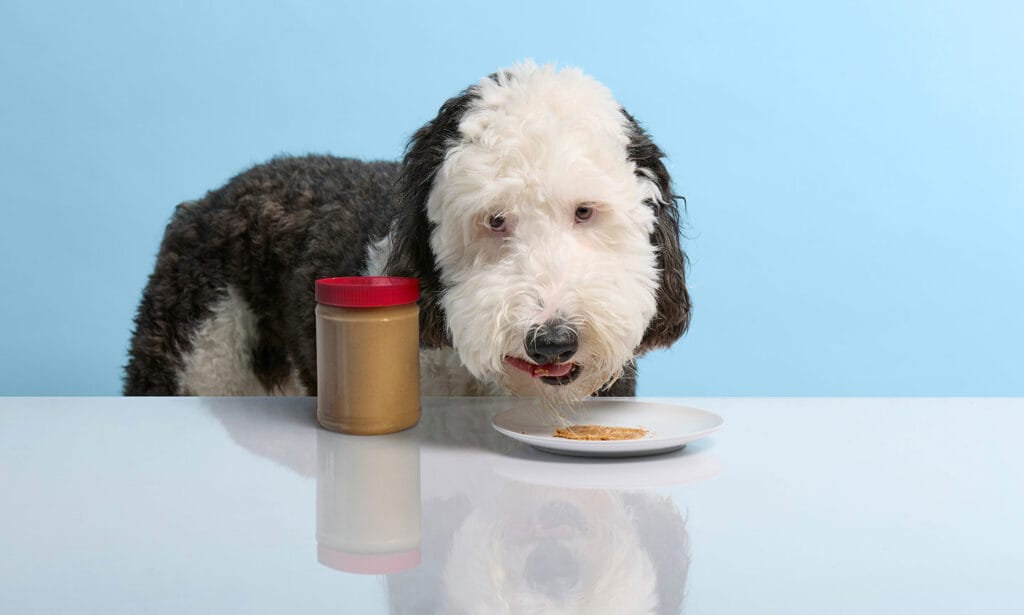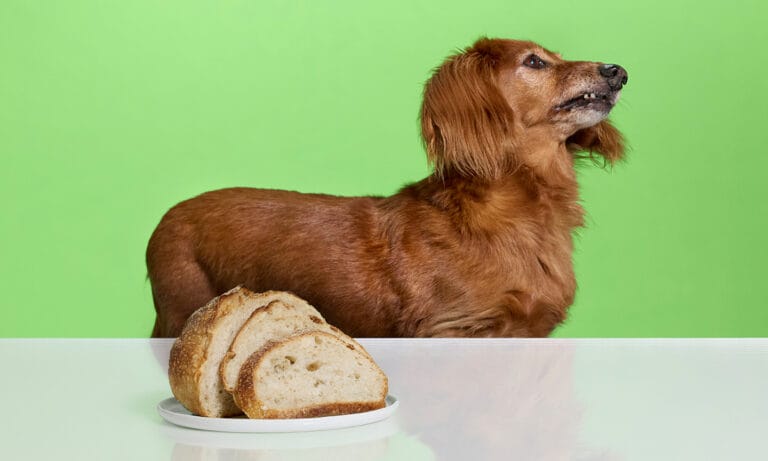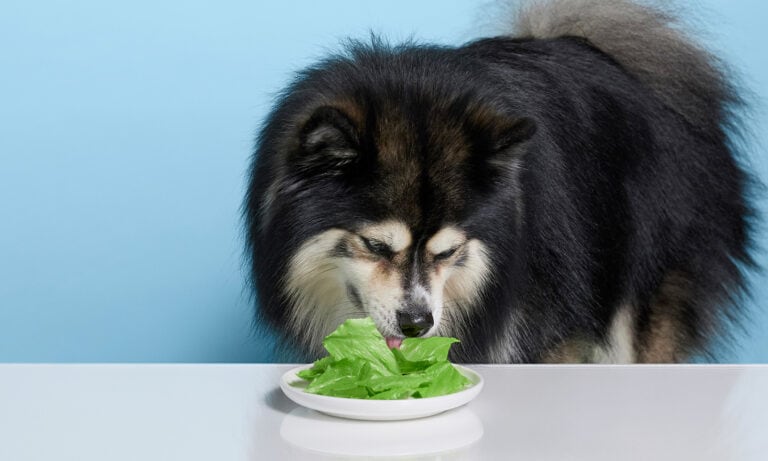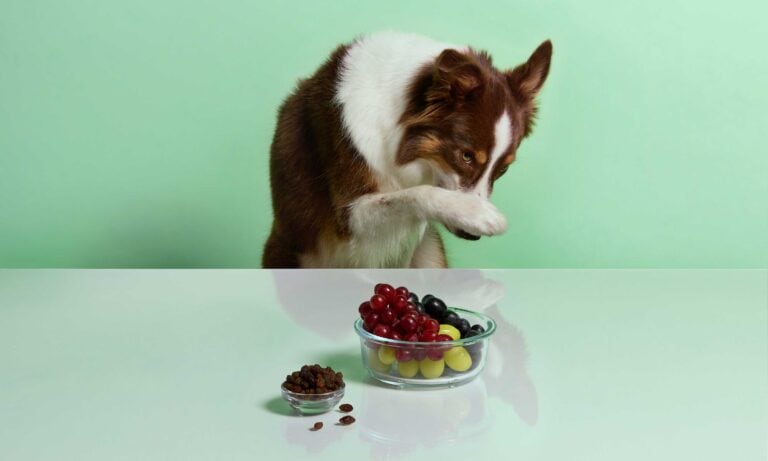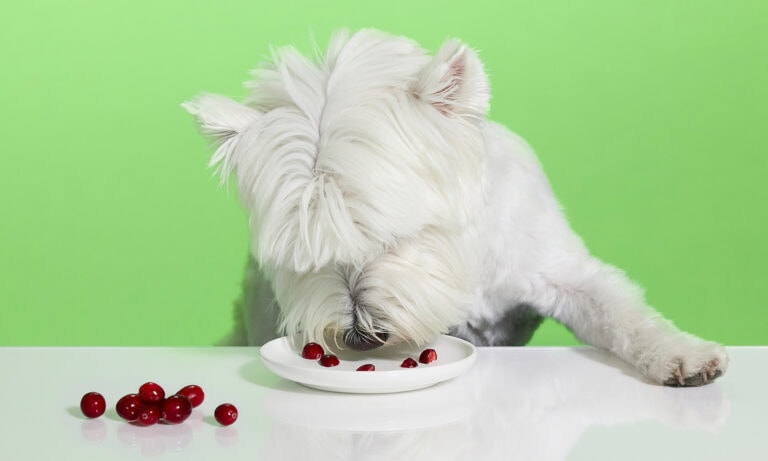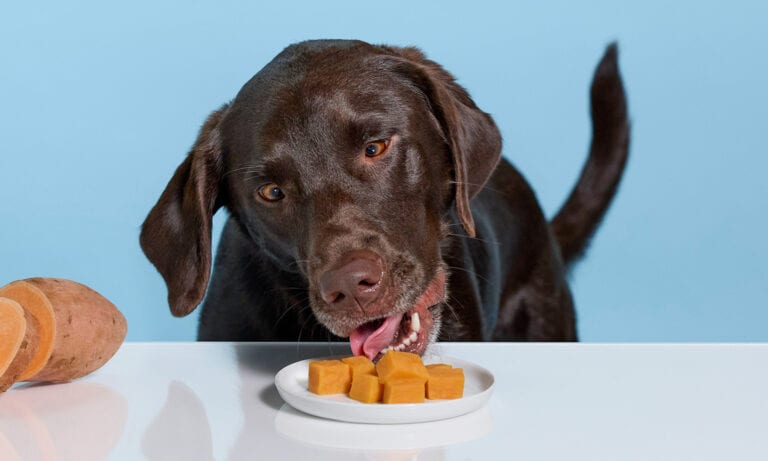Can dogs eat peanut butter? Yes, they can! Not only is it safe for dogs in moderation, it has several nutritional benefits. But what your furry friend might love the most is that it’s super fun to lick up. (And you’ll love that they’re entertained!)
We spoke with Dr. Gary Richter, DVM, owner and medical director of Holistic Veterinary Care in Oakland, California, and founder of Ultimate Pet Nutrition, for tips and advice on how to include peanut butter in your pup’s diet. Here’s everything you need to know.
Health Benefits of Peanut Butter for Dogs
Is peanut butter good for dogs? Yes! This yummy human food is not a substitute for dog food but when fed in moderation, it is a healthy treat that can be as nutritious and it is delicious. As with all treats, peanut butter must be factored into daily calories per your vet and is not intended to be served in large amounts.
- Excellent source of protein and healthy fats.
- Contains vitamin B6 and niacin, vital nutrients that support your dog’s enzyme function, red blood cell and nervous system function, glucose generation and immune response, among other benefits.
- Contains vitamin E, which is essential for healthy eyes and muscles.
Risks of Feeding Peanut Butter to Your Dog
While dogs can eat peanut butter as a treat or mixed in with their regular food, Dr. Richter suggests pet owners keep these things in mind before feeding it to their pup:
- Dogs can have peanut allergies, although it’s rare. Mild allergic reactions can include symptoms such as red and itching skin, while severe allergic reactions may lead to difficulty breathing. Take your pup to the vet immediately if you suspect your dog has a peanut allergy.
- What ingredient in some brands of commercial peanut butter is bad for dogs? Some brands of peanut butter contain the sugar substitute xylitol. This artificial sweetener can be life threatening to dogs as it can cause a condition known as hypoglycemia which can result in liver failure that can be fatal. Read the ingredients carefully before feeding any store bought brand to your dog. If you see xylitol, remove it from your cart.
- Portion control is important. Peanut butter has a high fat content, so pet owners concerned about their dog’s weight should avoid feeding them too much. Treats should never make up more than 10% of a dog’s daily caloric intake. Dr. Richter says a 50-pound dog needs about 20 calories per pound (1,000 calories), so should have no more than 100 calories of treats per day. A 20-pound dog needs about 40 calories per pound (800 calories), so should have no more than 80 calories of treats a day. Check the label to get an idea of how many calories are in each serving. Dogs with pancreatitis should be approved for eating peanut butter by a vet.
- Too much peanut butter can cause gastrointestinal upset. Like any high-fat food, too much of this can lead to GI upset such as vomiting or diarrhea. Watch your pet’s reaction to their digestive system before feeding more peanut butter.
- Peanut butter can be sticky going down and potential choking hazard so be sure to provide plenty of water.
How to Feed Peanut Butter to Your Dog
You should always consult with your vet before feeding to your dog to determine if it’s an OK treat and the appropriate portion size. Even a nutritious snack should be factored into your dog’s optimum daily balanced diet. Here are some suggestions for how to feed peanut butter to your dog:
- Spread in a rubber dog toy or on a lick mat. It’s a great way to keep a dog entertained!
- Start small. If your dog has never had peanut butter before, start with a small amount to see how they react. If they don’t have any signs of a peanut allergy or upset stomach, you can continue feeding it to them.
- Make it a small snack. Go ahead, let your pup lick the spoon!
- Mix peanut butter in with your dog’s regular food or use it as a food topper. Or try hiding it under your dog’s regular food to make them work for the special treat.
Frequently Asked Questions
Q:Can dogs eat peanut butter cookies?
A:No, dogs should not eat peanut butter cookies since they’re usually high in added sugar, which is not good for them. But if a piece of your cookie falls on the floor and your pup gobbles it up, there’s no need to worry.
Q:Can dogs eat peanut butter and jelly?
A:No, dogs should not eat this classic combo because jelly is high in sugar, which is not good for your pup.
Q:Can dogs eat peanut butter every day?
A:No, dogs should not eat this every day because of its high fat content, which can lead to weight gain.
Q:Can dogs eat peanut butter with palm oil?
A:Yes. Dr. Richter says peanut butter with palm oil is not likely to be harmful to your dog.
Q:Can dogs eat peanut butter cups?
A:No. That’s because dogs can not eat chocolate. Never as it can cause very serious health issues.
Q:Can dogs eat peanuts?
A:Yes. In moderation and only peanuts that are dry-roasted, raw, unsalted and shelled. Avoid salted or flavored nuts such as honey roasted. A few nuts a day should be fine for dogs with a healthy weight.
Q:Can peanut butter make my dog constipated?
A:Probably not. However too much a good thing is always a risk. As with any treat, start slow and watch for signs of constipation.
WHAT ARE SOME OTHER HUMAN FOOD THAT DOGS CAN EAT?
Share:
